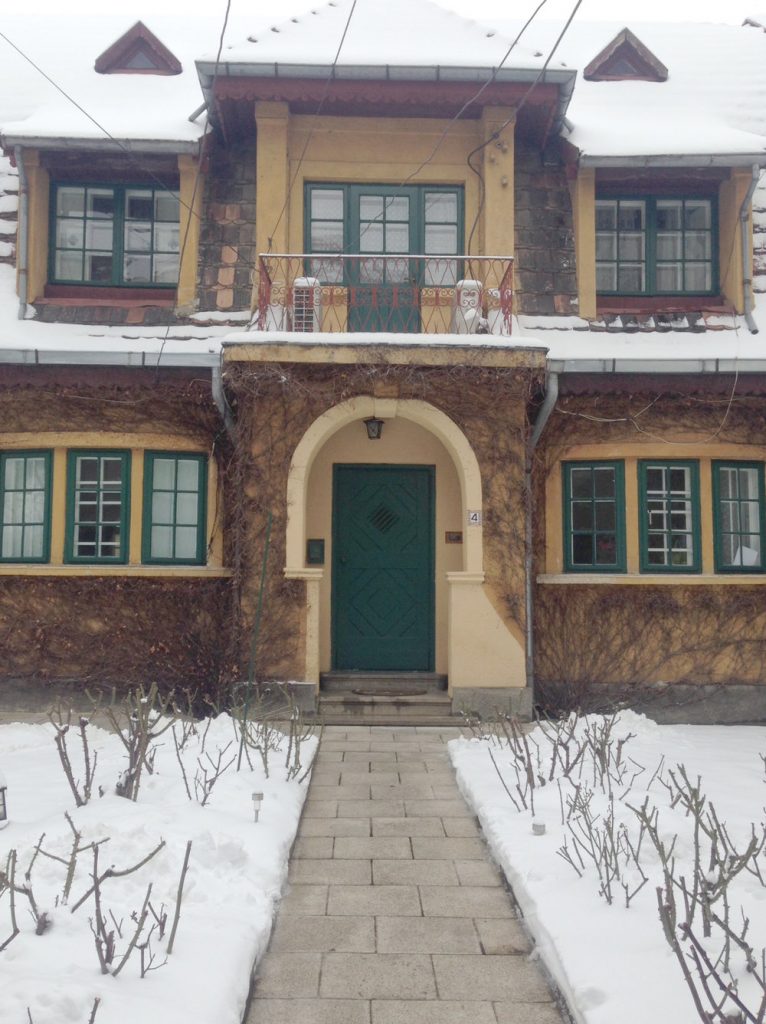
Today, as I was zesting oranges and juicing them, I thought of you.
I’ll visit my friend and her kids tonight, and shopped gifts are innapropiate somehow, so I’ll bring them one of the best things I know: golden orange cake! I encountered it for the first time on the island of Siros a few years ago. I adored it instantly, like so many things from the Mediterranean.
I zested the oranges and found that only two of them were tasty – the ones I had handpicked myself – the others were…boring. Juice oranges, no personality at all, you’d say. The good ones were so perfumed, I could eat them with zest and all.
I love oranges! Many people avoid them, saying they’re harder to peel than mandarins.
Until I met you, I had only once been to the Mediterranean, one April, in Greece, as a first year student on a trip with the faculty. We had stopped somewhere at the side of a road and found a…grapefruit orchard. Or so it seemed. It was picked, but two unripe fruit were hanging from the branches.
There were no flowers at all at that time.
And I had always thought that some oranges are better than others, so much better, but I believed finding them was sheer luck, nothing else.
Then I met you and you told me about how you missed the orange trees in your garden at home and the scent of their flowers and their sweet juice. You told me there were so many oranges in the trees there, it was a pity your mom couldn’t make something of them all – sometimes they’re even left to rot on the lawn.
…I imagined this blessed land, were people always have the sea in the corner of their eyes and that warm smile and oranges hang from the trees at least twice a year.
You told me that orange trees, like other citrus relatives, bloom and bear fruit twice a year, so they’re in bloom when their fruit are ripe.
I always believed I’d see those trees one day, with their branches full of flowers and hanging low with oranges.
We went to the store, it was a grey autumn day, like so many days in Germany. You picked the oranges carefully and I wondered how you knew…’How d’you mean that – how do I know which ones are good?!’ you laughed at me. ‘Isn’t it obvious?!’
No. I couldn’t tell.
‘I can’t believe you, I’m sure you can tell them apart. Look, these are the navelinas, they have these little navels at the bottom, see? Then the Taroccos, they’re boring, then there are the common blondes, the maltaise – but there are no maltaises here,…the Thomsons…’ You muttered their ‘names from home’ as you turned them over and I kept staring at the piles of oranges, bewildered.
We left the stall with 3 bags full of samples and went around a corner, where the apples were.
‘Look, apples. I cannot imagine how you can tell apple sorts apart, though.’ You looked puzzled.
But come on, look, these boring ones are Granny Smiths, they are hard and often taste like paper. Then the Golden Delice, they’re reddish and sweet...
Yes, even I know that reds are sweet and greens not so, you said.
But the yellow ones? And the sour ones? I like those, the Jonathans.
‘I couldn’t tell’, you said. ‘They’re all alike to me, just the colour differs. But now I have someone to teach me about them. One day…’ You smiled.
I’ll tell you a secret. When I pick oranges these days, I choose them by smell.

